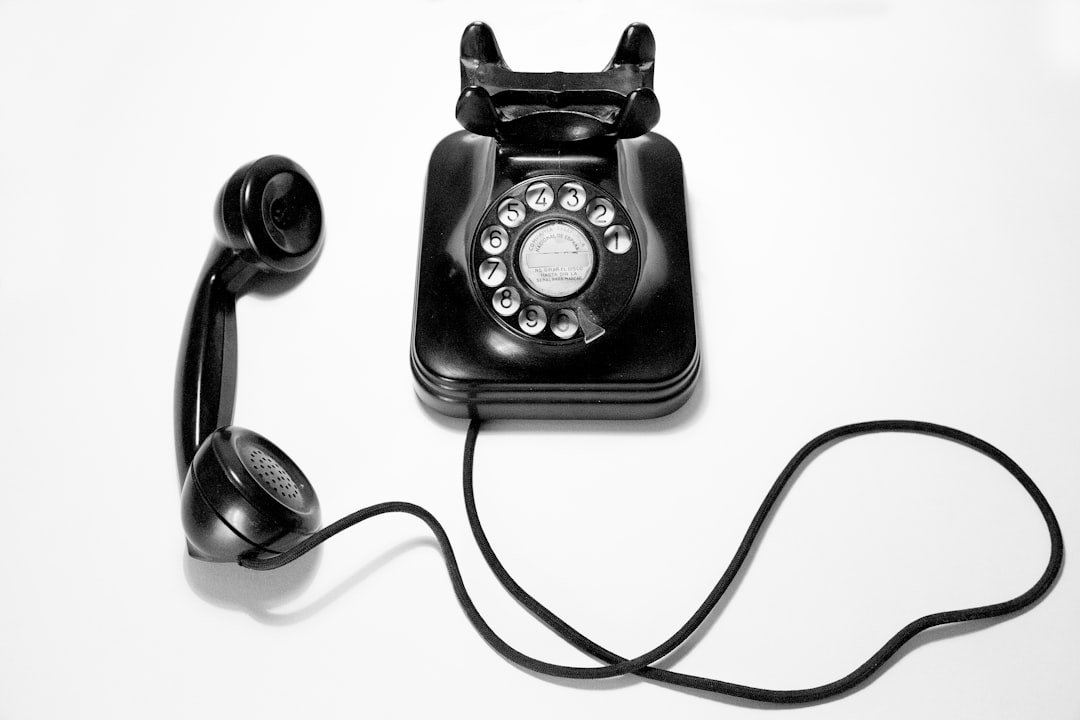In Iowa, unwanted robocalls from debt collectors targeting the wrong numbers are regulated by state and federal laws, notably the Telemarketing and Consumer Fraud and Abuse Prevention Act (TCFA). Violations can lead to financial compensation for consumers. The Iowa Attorney General's Office enforces these rules. If you receive such calls not related to your debt, you may have legal recourse through a Robocall Lawyer ID or specialized law firm, which can navigate TCFA cases and secure compensation. Engage with firms specializing in consumer protection and telemarketing laws for guidance and potential action against incorrect callers.
Tired of unwanted debt collector calls? You’re not alone. In Iowa, robust laws protect consumers from robocalls and illegal debt collection practices. This comprehensive guide explores your rights and legal options. Learn about the role of a robocall lawyer in identifying and addressing these issues, especially when a debt collector dials the wrong number. Discover steps to take after receiving unwanted calls and explore legal recourse for financial compensation. Find the right debt collector calling wrong number law firm with our expert recommendations and inspiring success stories.
- Understanding Robocall Laws and Regulations in Iowa
- When is a Debt Collector's Call Considered a Wrong Number?
- The Role of a Robocall Lawyer: ID and Expertise
- Steps to Take After Receiving Unwanted Debt Collector Calls
- Legal Recourse for Financial Compensation: A Comprehensive Guide
- Choosing the Right Law Firm: Qualifications and Experience
- Success Stories: Real-Life Cases of Wrong Number Debt Collection
Understanding Robocall Laws and Regulations in Iowa
In Iowa, robocalls, especially those from debt collectors targeting the wrong numbers, are regulated by state and federal laws designed to protect consumers. The Telemarketing and Consumer Fraud and Abuse Prevention Act (TCFA) restricts automated calls, often referred to as robocalls, unless the caller has obtained prior express consent from the recipient. This law includes provisions for financial compensation if a consumer’s rights are violated, particularly when it involves debt collector misdials.
Iowa’s implementation of TCFA is enforced by the Iowa Attorney General’s Office, which takes seriously complaints related to unwanted robocalls. If you’ve been disturbed by repeated calls from a debt collector or their representatives using automated dialing systems after not giving permission, you may have legal recourse. Retaining a robocall lawyer ID or consulting with a law firm specializing in TCFA cases can help navigate these regulations and secure financial compensation for your inconvenience.
When is a Debt Collector's Call Considered a Wrong Number?
In the context of debt collection practices, a call from a collector that lands in the wrong hands can be more than just an annoyance; it could be a violation of consumer rights. A Debt Collector’s Call is considered a “wrong number” when the intended recipient is not the person or entity owing the debt. This often occurs when collectors mistakenly dial random phone numbers, use automated dialing systems (robocalls), or employ aggressive tactics to reach debtors. If you’ve received such calls, despite not being the person responsible for the debt, you may have grounds to take legal action.
A robocall lawyer or debt collector attorney specializing in these matters can help you understand your rights under Iowa law. These professionals can guide you on how to file a complaint with relevant authorities and potentially seek financial compensation if the collection agency has infringed upon your privacy or used unlawful methods to contact you. With their expertise, you can navigate the legal process and hold debt collectors accountable for calling the wrong number.
The Role of a Robocall Lawyer: ID and Expertise
Steps to Take After Receiving Unwanted Debt Collector Calls
If you’ve been receiving unwanted calls from debt collectors or robocall lawyers claiming a debt on your behalf, it’s important to take immediate action. The first step is to gather all relevant information about the caller, including their name, phone number, and any details they have provided about the alleged debt. Document each call, noting the date, time, and specific statements made by the collector. This documentation will be crucial if you decide to pursue legal action.
Next, contact a law firm specializing in robocall attorney services or debt collector calling wrong number cases. They can help determine if the calls are legitimate or if your personal information has been compromised. A lawyer with expertise in these areas can guide you through your rights and options, including potential compensation for harassment or invasion of privacy. Don’t hesitate to seek legal advice; many firms offer free consultations to assist individuals affected by such issues.
Legal Recourse for Financial Compensation: A Comprehensive Guide
In Iowa, if you’ve been a victim of unwanted robocalls or persistent debt collector calls made to the wrong number, you have legal options to seek financial compensation and put an end to this nuisance. The first step is to gather evidence, such as call records and any communications with the callers. This documentation will be crucial when engaging the services of a robocall lawyer ID or robocall attorney ID specializing in these matters.
These legal professionals, often part of debt collector calling wrong number law firms ID, can help navigate complex laws and regulations related to consumer protection. They will guide you through the process of filing complaints with regulatory bodies and, if necessary, taking legal action against the culprits. Their expertise extends to understanding the nuances of state-specific laws, ensuring you receive the maximum compensation for your distress.
Choosing the Right Law Firm: Qualifications and Experience
When looking for a law firm to handle your robocall or debt collector calling wrong number issues in Iowa, it’s paramount to choose one with proven expertise and success in this specific area of law. Seek out robocall lawyer ID or robocall attorney ID firms that specialize in consumer protection lawsuits, as these professionals are equipped to navigate the complexities of telemarketing laws and regulations. Experience counts; look for firms with a track record of winning cases against debt collectors and robocallers, ensuring they understand the nuances of legal strategies required to secure financial compensation for clients.
Qualifications and reputation should be at the forefront of your decision-making process. Reputable law firms will have the resources to invest in ongoing legal education for their attorneys, keeping them up-to-date on changes in legislation and court rulings. Additionally, a strong client testimonial record demonstrates their commitment to ethical practices and client satisfaction. Engage with potential firms to gauge their understanding of your unique situation and their willingness to fight for your rights as a consumer.






